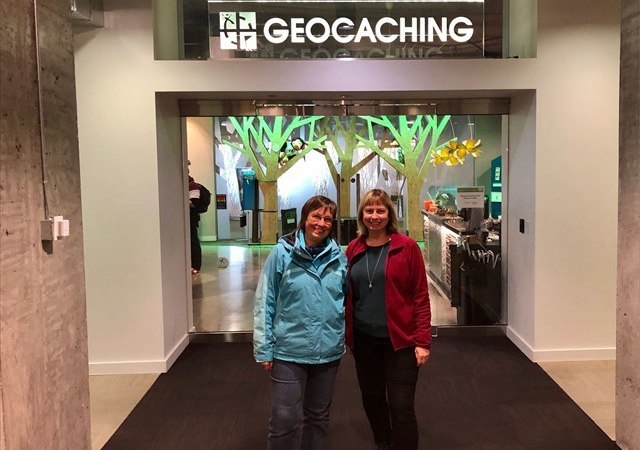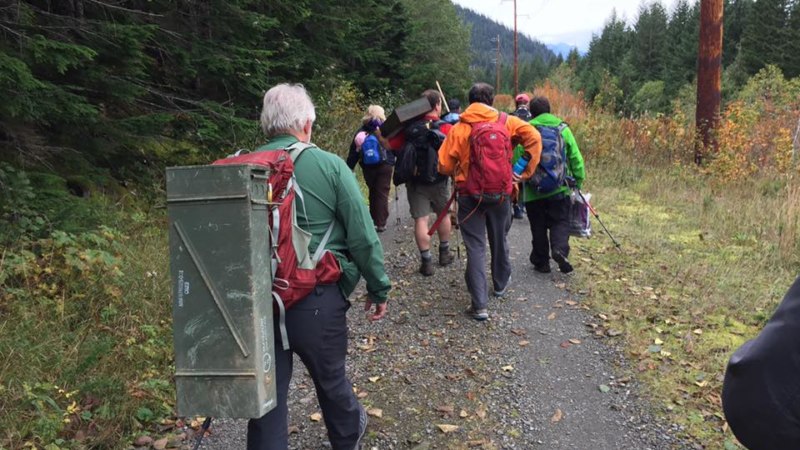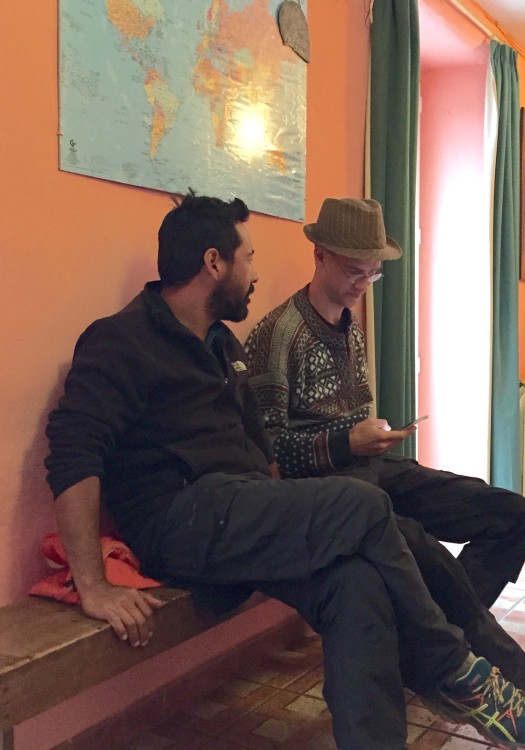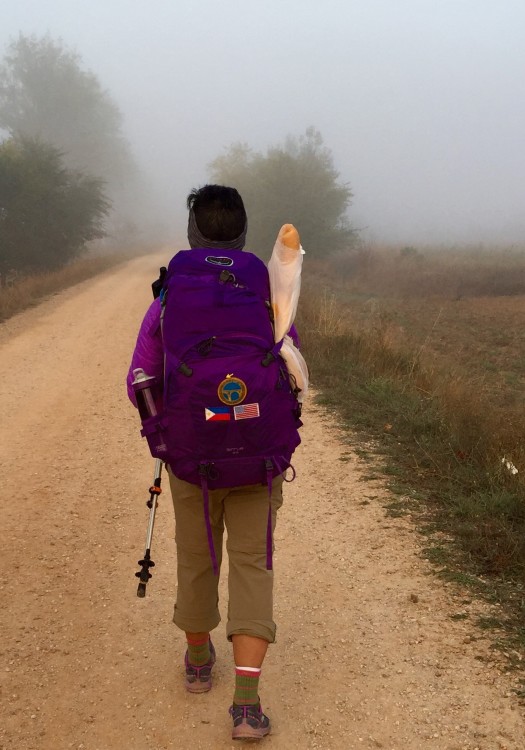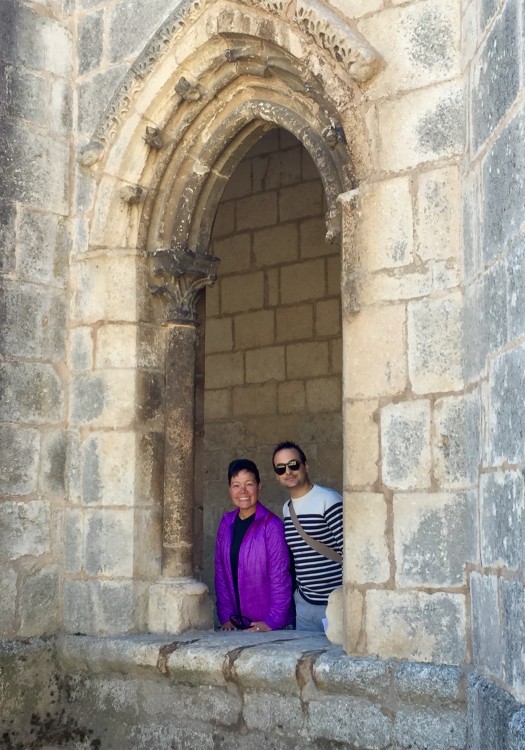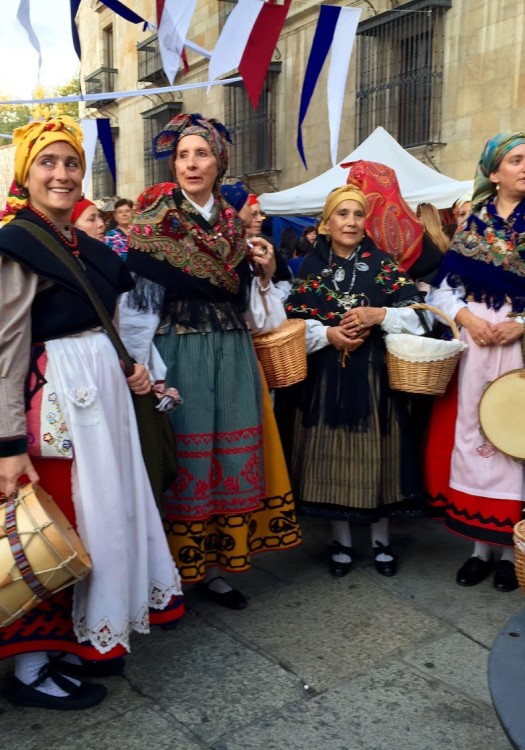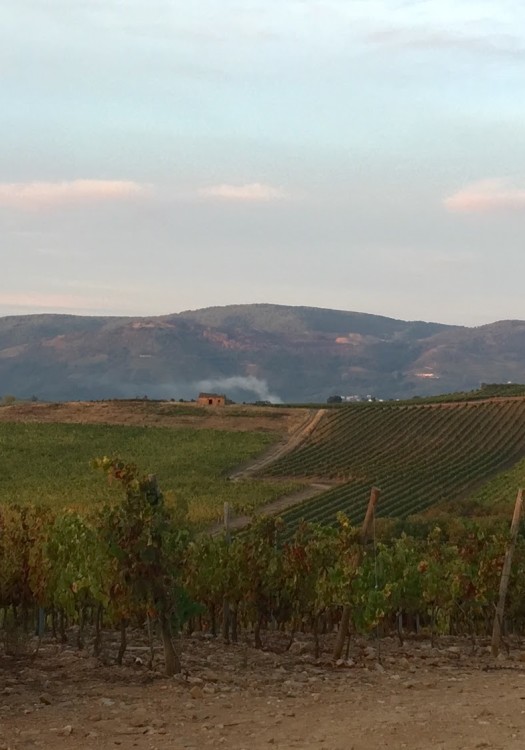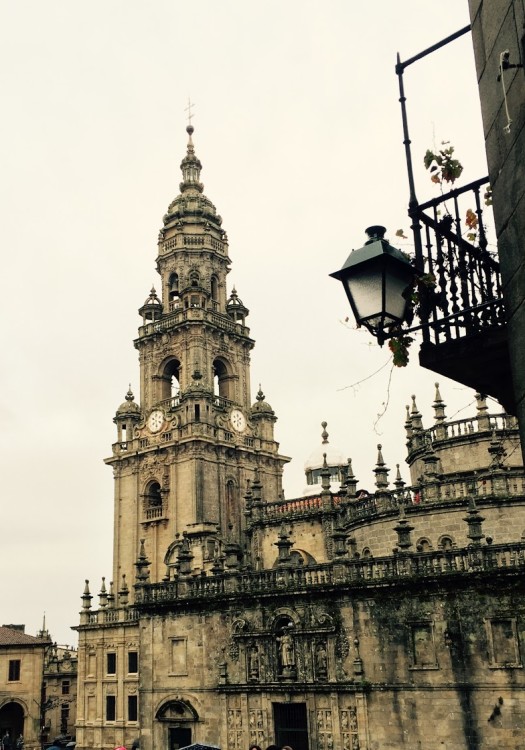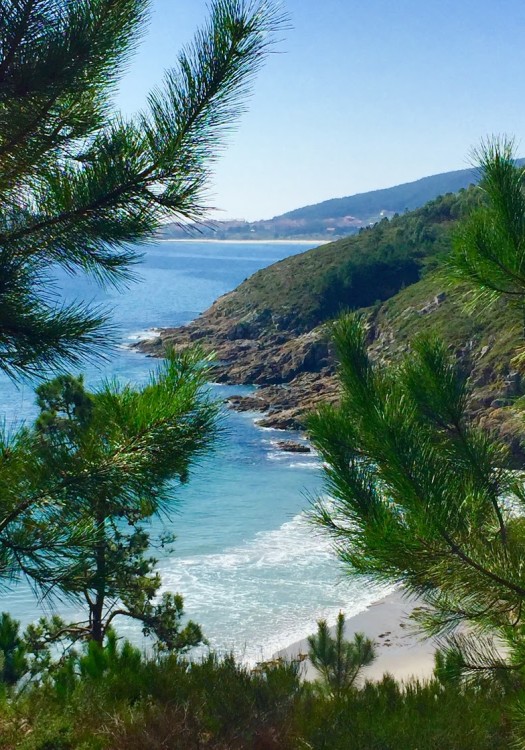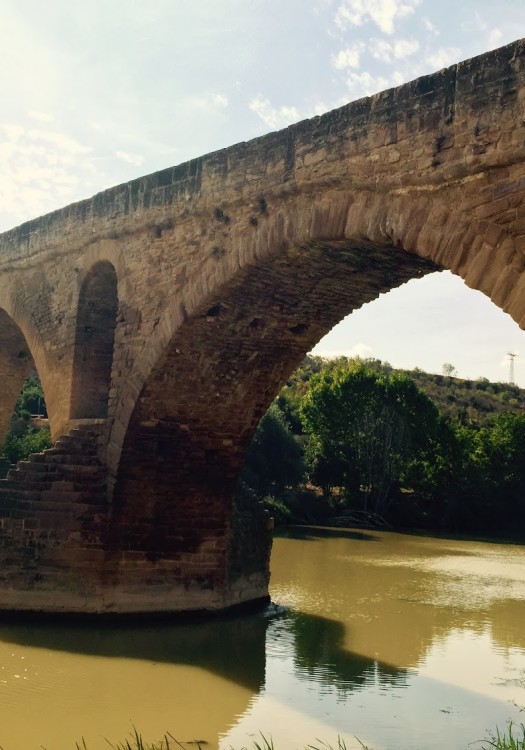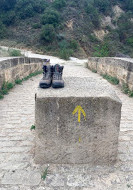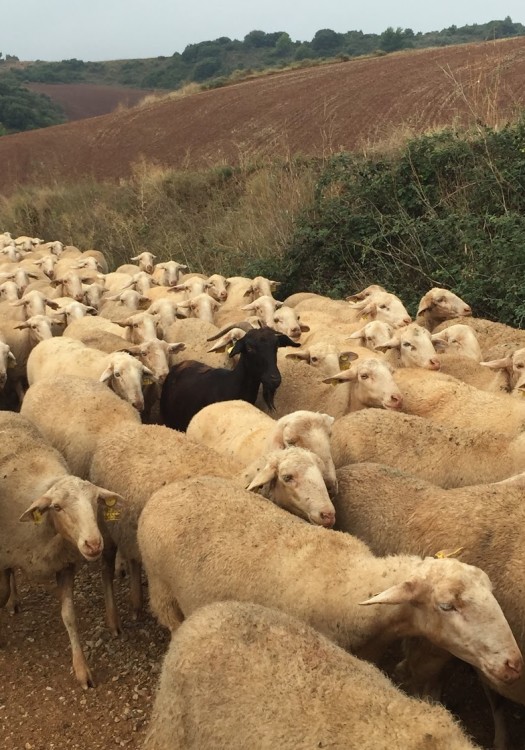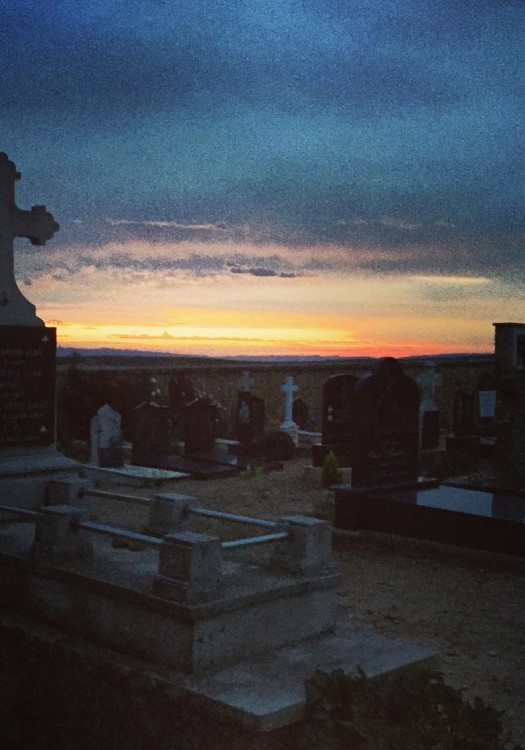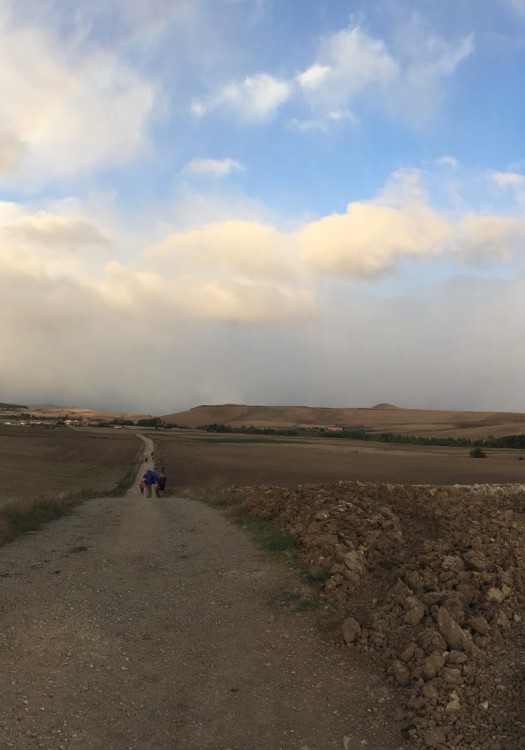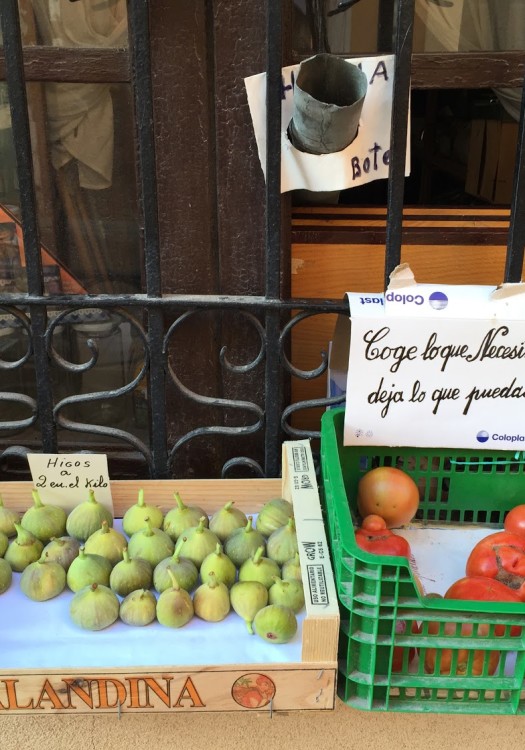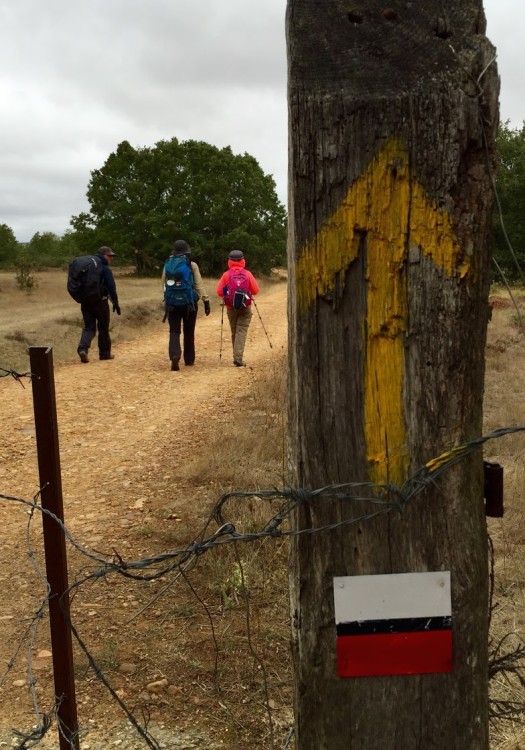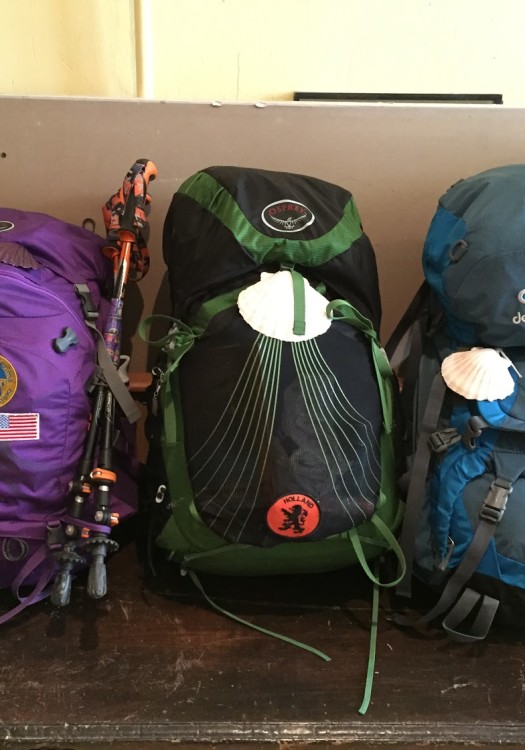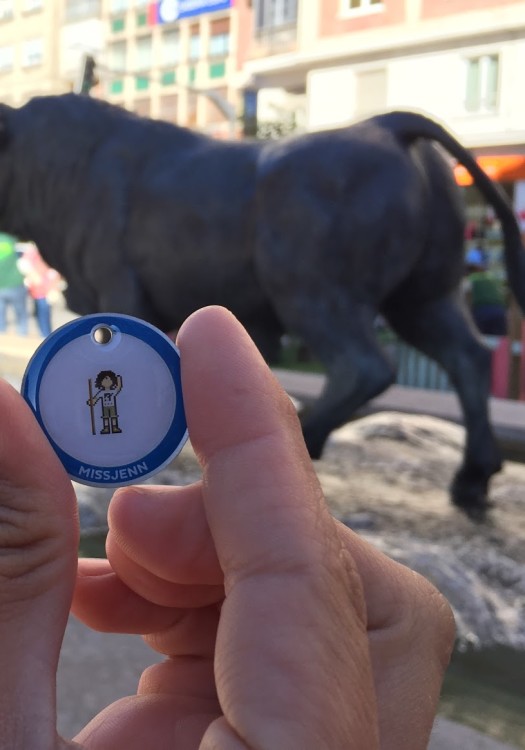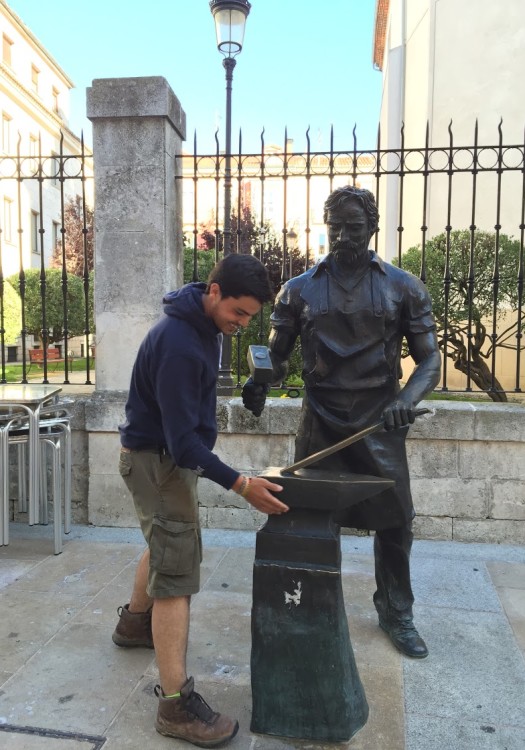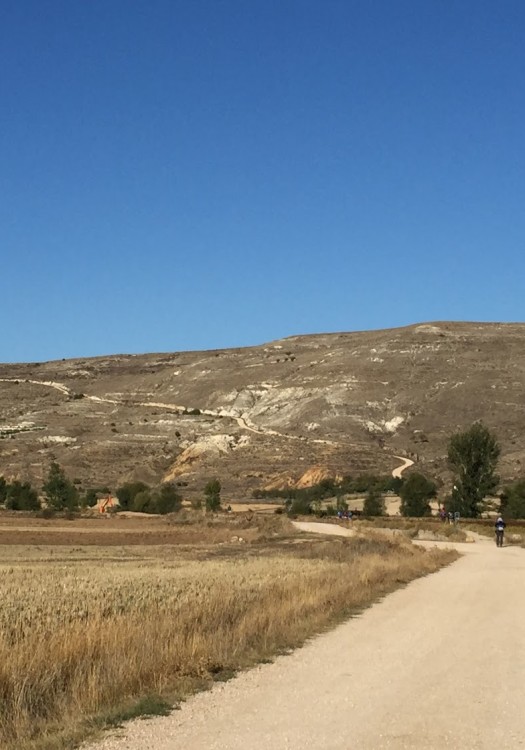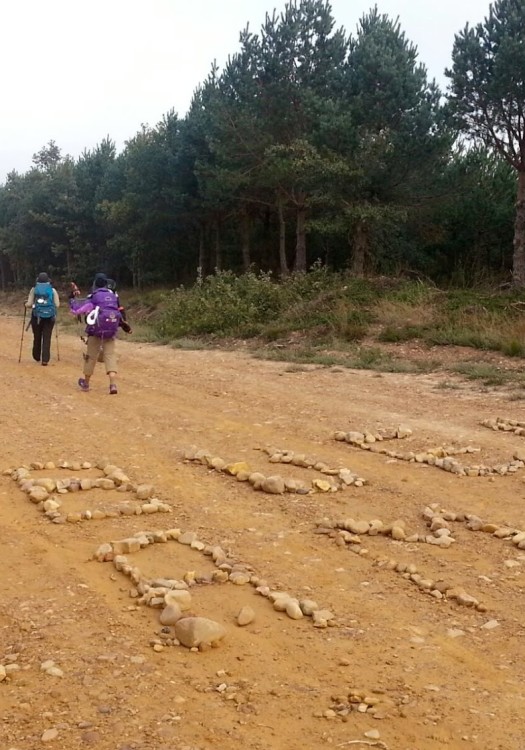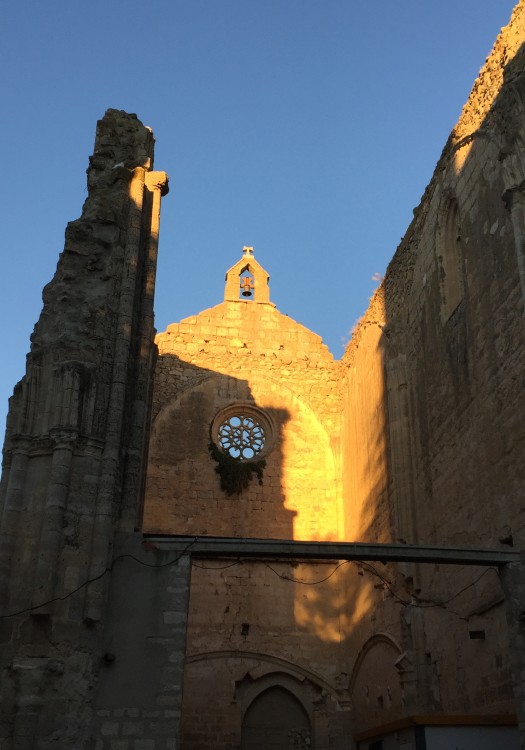When I’m not working as HQ’s senior public relations manager, it is very likely you will find me geocaching somewhere. My caching experience is sure to be enhanced by HQ’s recent addition of county lines to the Geocaching map on Geocaching.com and the Trails map (Premium member feature) in the Geocaching® app. The county lines are based on OpenStreetMap data. With this functionality, it’s much more convenient to determine in which county a cache is located. Continue reading →
Category: Lackeys
Inside Geocaching HQ Transcript (Episode 31): Jen Smith, Front End Developer Lead
00:14 Chris: Hey, everyone. This is Inside Geocaching HQ from Seattle. I am Chris, my Geocaching username is Rock Chalk, I am one of the lackeys here at Geocaching HQ and we thank you for listening to our podcast. Our episodes are often focused on specific projects or issues but every so often we just check in with one of my fellow lackeys to ask them about their jobs and that is what we are doing today. I am chatting with Jen Smith who is a Front End Developer Lead. I’m always asking for podcast ideas and a few people have asked to hear about Wherigo. Well, Jen was very involved with creating Wherigo. So for the people who have asked to hear about that you will enjoy this conversation and you will enjoy hearing about all the other cool stuff that she is working on today. So here is me and Jen Smith, enjoy.
[music]
01:22 Chris: And then I gotta figure out I should write down how I wanna start these things. I never know.
01:25 Jen Smith: Yeah, you should have your own schtick.
01:27 Chris: I should.
01:28 JS: Like an intro and an ending. [chuckle]
01:32 Chris: Yeah, I should do one of those like a talk show host does. But yeah, I’m not that professional about it, I guess.
[laughter]
01:43 Chris: Alright, I think I’m ready. Well, Jen, thank you for being on the podcast, you’re one of the longer tenured lackeys here at Geocaching HQ. How many years has it been for you now?
01:55 JS: It’s been a lot of years, it’s 13 and a half. My 14th anniversary will be next July.
02:01 Chris: And you were talking, before we started here, about how many of the different offices you’ve been… I think you said maybe this is your fourth?
02:07 JS: Yeah, four offices. I think that the company’s only been in five. So, I came into the first, I think what was the first official office and it was a tiny… Basically, just a couple of rooms above an art studio in downtown Seattle which is really fun. But, yeah, there’s been that one, there was Riverton, actually Downtown, Belltown, 5th Ave and then we’ve been in Fremonts in the Fremont neighborhood ever since, across the street from where we are now. And then Google took that over and so we moved into the current office.
02:35 Chris: Had you heard of Geocaching before you started? What was it? We said 14 years ago. [chuckle]
02:40 JS: That was 14 years ago. No, I had not. And it’s funny because I was actually part of the… One of the first interns that they hired, there were a group of four of us. I had just graduated from college and I needed a job and so I was scouring the ads on Craigslist and found an ad for a job doing I think they called it Creative Content Development and having an art degree I thought, “Oh, this sounds like something I should look into.” And it turned out to be for a little project called Wherigo.
03:08 Chris: Well, so you said you have an art degree. So it wasn’t a… You didn’t have a computer background at that? Or an engineering or whatever…
03:17 JS: No, no, my back…
03:18 Chris: It was more art. Yeah. Wow.
03:19 JS: Yeah, my background is in sequential art so essentially comic books, graphic novels, storyboarding, I really wanted to be a graphic novelist. So that’s what I was really focused on when I graduated, then got hired here at Groundspeak and over the course of my years here discovered that I just really loved programming. So I ended up going to school and getting my CS degree while I was working here on Wherigo and then on the web team. The rest is kind of history.
03:44 Chris: Wow, I never knew that, that’s amazing. So, do you still keep up with the stuff that interested you in college then? The art side of it?
03:53 JS: Not as much anymore. It’s one of those things that I always want to and I always think about it. My partner is a designer and so the two of us do a lot of… We have a lot of art related inside jokes and we’re constantly drawing stupid pictures for each other or thinking about, “Oh, we should open a T-shirt shop or something and sell T-shirts or something.”
04:16 Chris: I would think that having that background though must be very helpful with what you do now because there is that marriage of design and the engineering side of things that goes into creating products, apps and websites and all that stuff, I gotta think that’s really useful for you.
04:33 JS: Yeah, I think it is, it’s incredibly helpful. First of all, so as a little bit of background currently I’m a Front End Developer. I’m the Front End Developer Lead, so I… Actually, I’m working on the adventures project right now, so I’m not involved in the web as much but I do run the weekly team meetings, architecture meetings, and try to make sure that anyone who works in the Front End, so the HTML, CSS, and JavaScript on the website is supported and is able to do their best work. And it is super helpful when you’re working on the client side because it’s very much you’re responsible for the interactions and the visuals and we have a design team who comes up with the design systems and actually defines what’s our product on the web is supposed to look like and how it’s supposed to behave, and then we’re the ones responsible for implementing it. So you do need to be able to speak that language. So it’s very, very helpful to have that marriage of an art or a design background and then be technical enough to be able to write decent code that works as expected.
05:39 Chris: So you referred to Front End Developer, for people that might not be familiar with the terminology, does that mean there’s a Back End Developer?
[chuckle]
05:47 JS: Yes, there absolutely is.
05:49 Chris: What is the difference between the two?
05:51 JS: So, I like cars. So, I’m going to give a car metaphor. Back End Development is the services that you don’t necessarily interact directly with but it’s the data that powers, everything that you see and touch and interact with on the website. And so, front end would be the… It would be the body, the styling, the center console, the dashboard, steering wheel, gear shift, all of that. Anything that you as a user can interact with. That’s what we build, but we need the Back End Developers and then the Full Stack and Middle Tier Developers as well who will split between both of those sometimes, everybody has to work together to build that car.
06:31 Chris: Right, right, and you said you first came here as an intern and then here you are now, 14 Years later, I… I mean, there must have continued to be things that have been compelling for you and interesting and challenging.
06:46 JS: Yeah, it definitely hasn’t been boring. There’s always something new to learn, something new to do, some new problem that needs to be solved, and I’ve actually… I mentioned I started on Wherigo, so I worked on that for a few years and then when we sort of backburnered that project a little bit, I ended up working in the marketing department for a very short period of time, and then I was recruited by who was at the time our lead web designer to work on the web team. And so, I’ve stayed on the web team ever since. So I’ve been able to move around, which I’ve always thought was really cool. It’s… I know a lot of people, or a lot of companies don’t really invest in their employees that much and give them so many opportunities to grow and to gain new skill sets, and to step outside of their comfort zones and do something completely new or change careers. And I’ve been able to do that, so I feel incredibly fortunate. But it’s also been… Yeah, it’s been a blast.
07:39 Chris: Okay, so you mentioned Wherigo a couple of times. That’s a very popular thing that I hear about when people write in and suggest podcast ideas, because it is a part of the game’s history and it’s something that people have just always been interested in. So I wonder if we could talk a little bit about your memories of that project and how it’s… Did you first know about it as an intern? Is it going back that far?
08:05 JS: That’s what… Yeah, that’s what I was hired to work on. So Wherigo was in the very, very early stages and there was, I think, if I remember correctly, one full-time developer who would built out the builder and the player, so it was… I think it ran on… It was an actual application for your desktop. I think it ran on Windows, it may have been XP, it might have been even earlier than that, I don’t exactly remember, but that was the builder and then the player application was for GPS enabled pocket PCs. So it was a very interesting, very niche platform. Anyway, they had this… We had this application and the company wanted content for it because…
08:45 JS: Well, I mean, how do you know? Is anybody going to even use it? How do you draw them in? And so, they were specifically looking for interns to develop that content. So people who would be the storytellers, creatives, I think, we had a couple of artists, one was a musician, just people who liked telling stories and wanted to explore what it would be like to make games and not necessarily video games, but specifically text-based interactive, like the old text-based RPGs. I’ve never played any of them, but I understand that Jeremy really… Jeremy Irish really liked them. And I think that was the… That might have been the inspiration for Wherigo is to have a location-based text-based RPG platform, which is… It could be really… I mean, was… I think it was… I still think it’s an incredibly cool platform.
09:41 Chris: Right. And what do you remember about… I don’t know. Just kind of, what went into it and the kind of work that you did on it there over the course of at that time.
[chuckle]
09:51 JS: Well, there were four of us that we formed a super user, I guess, and that’s where our J2B2 came from is… There were… It was Jen, Jared, Bryan and Ben, so “J2B2”. And it just so happened to sound like R2D2 and we were all nerds and thought, “This is great. There’s a double entendre there.” So we were responsible for creating all of the content that went into those cartridges and most of them are still up on Wherigo.com if you search for cartridges by J2B2. So we… Essentially, we… In the very, very early stages, we picked parks around the city that we thought were interesting, and then we’d actually take a field trip out there, look around, plot out all the locations and think about what kind of story would be compelling to tell here? What could we do? What parts… What are the interesting areas in this park that we can create some interesting interactions around? So for example it was the… The first time that I’d ever been to discovery Park was for on one of those Wherigo field trips, and just went out there and walked around. And you’d have a handheld GPS device with you, and you’d be…
11:00 JS: You’d go to a place where you thought that it looked interesting and you’d record a way point, and just keep going. And that was kinda how we plotted that out. And then we’d come back to the office and think, “Okay, what would be a fun story to tell?” And so we ended up… We did everything from puzzles. Some of them were really, really involved narratives. So there was an actual story that you’d have to be part of and characters that you’d play with, and some of them were really simple. Like, we did a series of bug hunts where we had custom travel bugs that weren’t actually trackable but they had custom tags or a custom codes stamped into them, and we’d go hide them around the parks and we’d have a different Bug Hunt for each park. And you’d go and you’d find the tags. Those weren’t very successful because people would find them and steal them, and then we wouldn’t have a game anymore.
[chuckle]
11:47 Chris: And so now today, you’re working on the Adventure Lab project, and there’s… It’s certainly some components of that that hearken back to the Wherigo experience. I would think that there are… There’ve been a lot of learnings, I would assume, from your work in past years on Wherigo and now what’s happening with this event… With the Adventure Lab Project.
12:09 JS: Yeah, absolutely. One of, I think, the failures of Wherigo was the fact that it was so incredibly complicated. You, essentially, had to have a programming background to be able to build even a simple Wherigo cartridge and our builder… Even our builder app, which did have a sort of rudimentary user interface, it was still very difficult to learn. So I think, that’s probably the biggest learning or the biggest take away, that one thing we’re being very careful about with Adventure Lab is eventually, we want to enable really interesting and flexible experiences, but we have to figure out how to… What tools can we give people to unlock their storytelling abilities easily, and that’s, I think, the hardest part. So we’re starting very, very simple. There’s still a bit of narrative capacity, but who knows what we’re going to add to it. It’s going to be an interesting balance, I think, between trying to give people the tools to be creative and flexible, and not hamstring them, but also not give them so much that they can’t get…
13:15 Chris: Yeah. No, I think, I totally… I think a lot of people listening to this will be nodding their heads when they heard you talking about how difficult it could be to build a Wherigo cartridge. I know I’ve owned a couple of them, but they were all built by someone else. I would give them the story that I… And the actions that I wanted to have within the cartridge, but I didn’t have any idea where to start as far as to build it. And it’s exciting to know that with Adventure Lab that it’s… There’s not that barrier to entry that there may have been with Wherigo.
13:46 JS: Yeah, and I think… I don’t just think that Adventure Lab is necessarily going to end up being Wherigo 2.0, but I think that it will share some of those original features, and it’ll definitely be… ‘Cause if you want… We wanna be able to help people again tell that story, or whatever that is. If they wanna write a narrative adventure, then that’s great, we’ll give them a way to do that. If they want like a simple, like upleveled multi-cache or a walking tour, or whatever, they could do that as well. But there’s a lot of work to be done to get there.
[chuckle]
14:21 Chris: For you personally, I know you’re an outdoorsy person and that you do some challenging hikes and stuff like that, and you also said you didn’t know about geocaching before you started here, are you able to integrate your love of hiking and being outside [chuckle] in finding some caches? It seems like… I wanna say that I maybe found one over the summer that you had been in that area too, and I was like, “Oh, my gosh, she’s hardcore at getting up too.” [chuckle] You went, I think, you went well further than I did, and I thought that what I’d done was pretty hardcore, and then I was like, “Oh, Jen’s a level above me,” because you were mentioning some cliff or… I think you said something like, “Hey, did you ever… ” Do you remember what I’m talking about? It was…
15:01 JS: Oh, yeah, that was a bit a… That was lake Melakwa, I think.
15:04 Chris: Yeah, and you were talking about some climb you had done or some, I don’t know, repelling? I don’t know what it was, but it sounded a lot more hardcore than what I was doing.
[chuckle]
15:14 JS: It was… That’s a beautiful area. We generally don’t rope up, but I would say that the majority of my geocaching happens while hiking. I love being outside. I’m not a big walk-around-the-city fan, I guess, and I feel very self-conscious. So I’m not… When I have to search for a cache that involves some amount of stealth, I feel like I just look really suspicious.
[chuckle]
15:38 Chris: I think we all do, yeah.
[chuckle]
15:40 JS: So… But something about, well, not something about, the going-out hiking, especially as you get more remote… Some of the best caches I found are the ones that have only been found like maybe once a year or maybe once every couple of years. And sometimes if I’m going out and I’ve spent a whole day bushwhacking off-trail to get up to this perfect little lake and there’s a cache there, and I open the ammo can ’cause it’s always an ammo can, because ammo cans are everywhere in the woods.
[chuckle]
16:07 Chris: Right. Of course, yeah.
16:09 JS: And it’s… There will be geo-coins in there, and I think I picked up a geocoin at one point that hadn’t moved in seven years or something, and it was on one of my favorite off-trail adventures, Preacher Mountain, up in the cascades. No trail up there, gorgeous lake. It’s just something about that journey to get there, and you feel like you’ve accomplished something, and then you find the cache there. And now you’re sharing this accomplishment with these other people, so you feel like you’re part of an elite club. And if it was a really, really difficult journey, then there’s this element of relief that, “Oh, somebody else has been there and they know what I’ve gone through, and… ” And then I just make for really cool logs as well having that experience to write about. And I love it when I’ll post a log on a cache that I really enjoyed, and then the CEO will contact me and would say, “Oh, this is like I’m… Thank you so much, I loved reading your log.” And I’m like, “I loved writing the log and finding the cache. Thank you for placing it.” And so you have this kind of mutual admiration society thing going on. But that’s… Yeah, I love lonely caches, things of high terrain, high difficulty, that’s cool. Finding… Going places that I usually, I maybe wouldn’t think to go or that I have to expend actual effort to get there. That, to me, that’s an adventure, and that’s what it’s all about.
17:26 Chris: Right, and does that inform then your, the work that you do on these products, that you’re creating tools that help people to do that kind of stuff must be fun to, I don’t know, think about the experiences that you personally have and then trying to help, have that inform the work that you’re doing on…
17:46 JS: Yeah, absolutely.
17:46 Chris: Whatever the project might be, yeah.
17:48 JS: Yeah, I hope so. One of the things that I’m excited about, or I’m hoping that we can do in the future for the Adventure Lab app is have a better offline experience. ‘Cause for me, I want that adventure that’s 15 miles out into the back-country, that is… There’s no data, it’s GPS only. I want to… How do I write a narrative around that? How do I… There are so many opportunities for really cool storytelling, I think, and also just having a good… Even taking a hike that might otherwise be kind of boring, like something like Mailbox Peak, which I hate… [chuckle] The worst hike ever… It’s… But if you had something to keep you occupied and to keep your mind… Or to keep yourself interested, I guess, well, while doing it, that’s, to me, I think that’s one of the beauties, I think, of the platform that the Adventure Lab can have that… Well, even the Wherigo had, is that fun offline experience. You take that… Anything that can happen in your imagination, and if you blend it with the real world, that’s cool. So, I hope… I imagine that sometimes my co-workers get really tired of me being like, “What about the offline experience?” But one of these days, I think we’re gonna get there.
19:01 Chris: Well, it’s funny, you mentioned Mailbox Peak, I did that hike with Jeremy Irish, and all I… If you just would have said the words “Mailbox Peak,” I would have thought, “Oh, yeah, I remember we were at the summit, and there was the mailbox and we had great pictures.” But then you started talking about it a little bit, and I did remember switchback after switchback after switchback with no view at all…
19:22 JS: [chuckle] No view, yeah.
19:22 Chris: Except for just forest. There was nothing. It wasn’t until the very end that you got a view, and, yeah, in retrospect, I didn’t love it. [chuckle] I loved Jeremy and I had a nice time together, but, yeah, I would have liked to have had a little story to follow on some sort of an adventure app or something like that.
19:43 JS: Yeah, yeah, me too. So maybe one of these days we’ll build something.
[chuckle]
19:48 JS: I think it’s fun.
19:49 Chris: And so, obviously there’s always new challenges with this job, different things that keep you engaged and keep you having fun.
19:58 JS: Never boring working here. That’s one of the things about having such a global community, is you can’t really make any assumptions about who’s going to be using any of your products, what circumstances they’re going to be using them in… Are they going to be at home on their laptop, like, planning their next caching outing? Are they going to be actually outdoors in the middle of nowhere with no data connection on a cell phone? Or maybe they’re using a handheld GPS. There are always, always edge cases, and as a developer you’re in tune with edge cases. And yet, our community somehow manages to find every possible use case, and so, yeah, you’re never bored and you’re always like, are there still features on the website that people will bring up and I’ll think, “Huh. I didn’t know that you could use it that way.” But someone has figured out how, and it’s become a very important part of their workflow, which is really interesting to see how people… ‘Cause you anticipate that somebody’s going to use your product or your work in a certain way, and then they do a complete 180 from what you thought they were going to do and it’s still a valid and interesting use case.
[music]
21:09 Chris: That was Jen Smith, a front end developer lead, here at Geocaching HQ. Do you have something you would like us to cover on the podcast, then send us an email to podcast@geocaching.com, again, that is podcast@geocaching.com. I always enjoy hearing your suggestions and any feedback that you might have. From me and from all of my fellow lackeys here at Geocaching HQ, happy caching.
[music]
Visit Geocaching HQ
Geocaching and traveling are natural partners, and every year cachers from around the world combine these pursuits when they travel to Seattle to visit Geocaching HQ.
Whether you are new to geocaching or you are about to log your 20,000th find, there’s a little something for everyone at HQ. The HQ Visitor Center is home to the famous HQ geocache, a live map showing recently logged caches around the globe, our rare trackable collection, the HQ photo booth, and the HQ shop.
Continue reading →Long lost APE cache is found!
A group of Seattle-area geocachers has claimed a historic victory against muggle forces by rescuing an APE cache more than five years after it went missing!
The History
In 2001, fourteen geocaches were placed in conjunction with 20th Century Fox to support the movie Planet of the Apes. Each geocache represented a fictional story in which scientists revealed an Alternative Primate Evolution (A.P.E.). These geocaches were made using specially marked ammo containers and contained an original prop from the movie. Mission 9: Tunnel of Light was one of those caches.
Located about 60 miles east of Seattle, the container was placed by Geocaching HQ co-founder Jeremy and the father of the geocoin, Moun10Bike. The cache was found more than 3,000 times, surviving minor disturbances over nearly 10 years. There is even a Mega-Event (Going Ape) created by the Washington State Geocaching Association to honor this famous cache.
Sadly, Mission 9 was muggled and then archived in June 2011. Moun10Bike wrote at the time, “The decision to archive was not taken lightly, and was not easy for either me or for Groundspeak. However, the rule with Project APE caches has always been that once the container goes missing (which is part of the identity of the original series of caches), then it is no longer an APE cache, and thus must be archived (or at least have its APE status removed).”
While the community mourned the loss, a tribute cache was placed and the Going Ape event continued each year. But thanks to the incredible efforts of dedicated cachers, there is a new chapter in this APE cache’s story.
The Search and Rescue
In April of this year, cachers Winos_Seattle and rambudo met up with Geocaching HQ co-founder Bryan Roth. As they chatted, the subject of the lost APE cache came up. Winos_Seattle wondered if the container could possibly be found. Over the years, some have speculated that it’s unlikely that whoever muggled the heavy container would have carried it nearly two miles back to the nearest parking area. Perhaps they simply removed it from its location and discarded it nearby?
But even if that were the case, the area is hilly and densely forested. A rescue effort would require detailed planning and keen eyes. Sounds like a job for geocachers!
With encouragement from Bryan and Moun10Bike, and after months of planning, the search commenced on October 1. The group of 10 included Winos_Seattle and rambudo, as well as other Seattle-area cachers Sproutter, Lamoracke, _Shaddow_, DSVaughn, Curious Joe, gsbarnes, KnightWolf74 and Princess Trouble.
After hiking to the tribute cache, they split into three teams and spread out into the surrounding forest. Equipped with two-way radios, each team was assigned to one of three zones. Within minutes, one team had located what turned out to be muggled tribute cache containers. The other teams found a variety of swag and logbooks, including ones with signatures from 2011 and 2014 (likely from the tribute cache).
Following an extensive and courageous effort, a joyous call eventually came over the radio, “We think we found the original container!” Down in the woods below the original cache location, behind a tree with the open end of the container facing down, was the Mission 9: Tunnel of Light cache. Distinguished by stickers affixed to the inside, as well as some Planet of the Apes trading cards, the cache had fared remarkably well over the years.
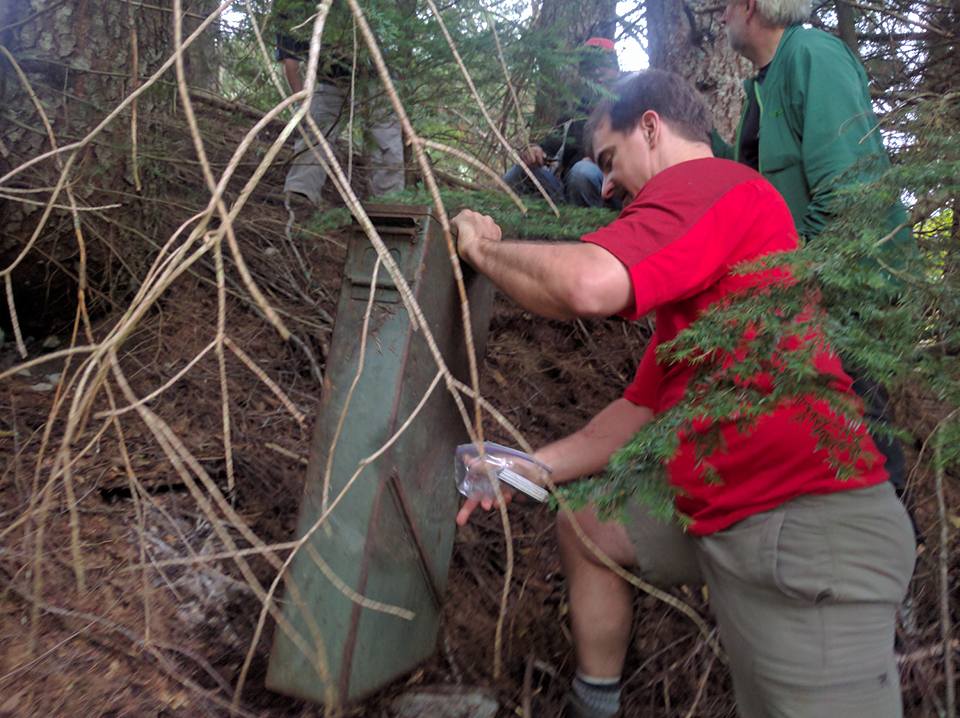
After a lot of celebratory high-fives, the group phoned Moun10Bike, who was shocked and delighted by the discovery. A couple days later, Moun10Bike, Bryan, and others at Geocaching HQ welcomed the triumphant searchers and the long-lost APE cache. And now that the container is recovered, we’re left with an important question.
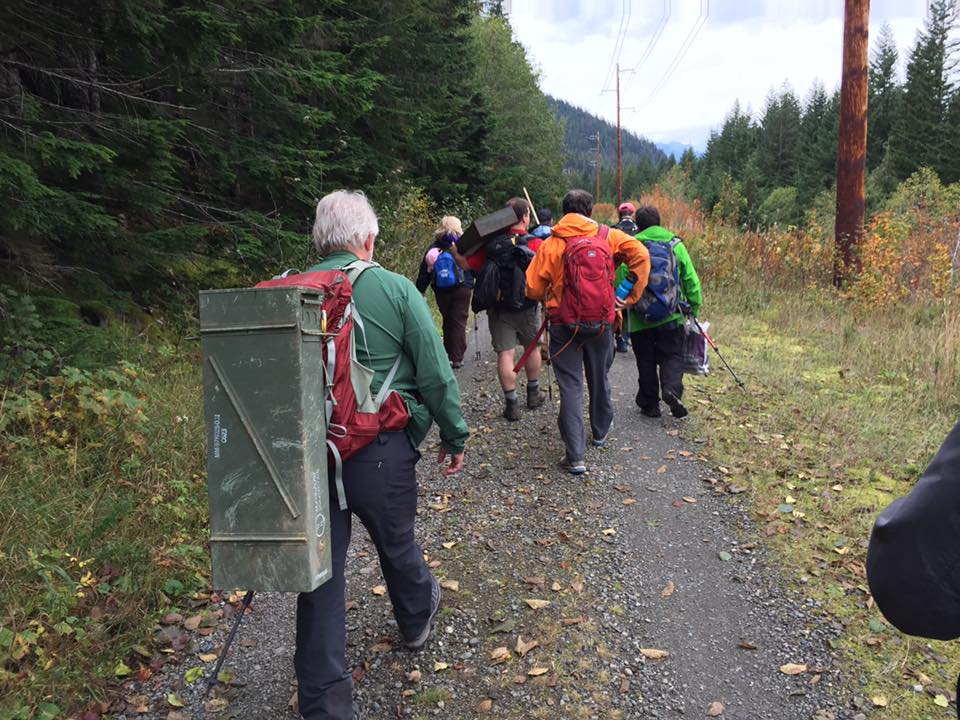
What’s Next?
The Planet of the Apes caches enjoy a special place in geocaching lore. Today, only one active APE cache remains: Brazil’s Mission 4: Southern Bowl. Given how the global geocaching community treasures the APE cache series, we feel it’s very important to hear what you think should happen next.

Should Mission 9: Tunnel of Light be returned to its original location and reactivated? Should it be kept safe from muggles and instead be displayed at Geocaching HQ as an artifact of the game’s history? Are there other ideas that should be considered?
We encourage you to make your voice heard by completing this survey by November 27, 2016. (Note: The survey is now closed, so we’ve removed the link from the blog) We’ll gather the ideas and later give you a chance to vote for your favorite in early 2017.
In the meantime, please join us in reveling in the knowledge that what once was lost has now been found. Congratulations and thank you to everyone who made it happen!

Geocaching along El Camino de Santiago, Spain
By Jenn Seva
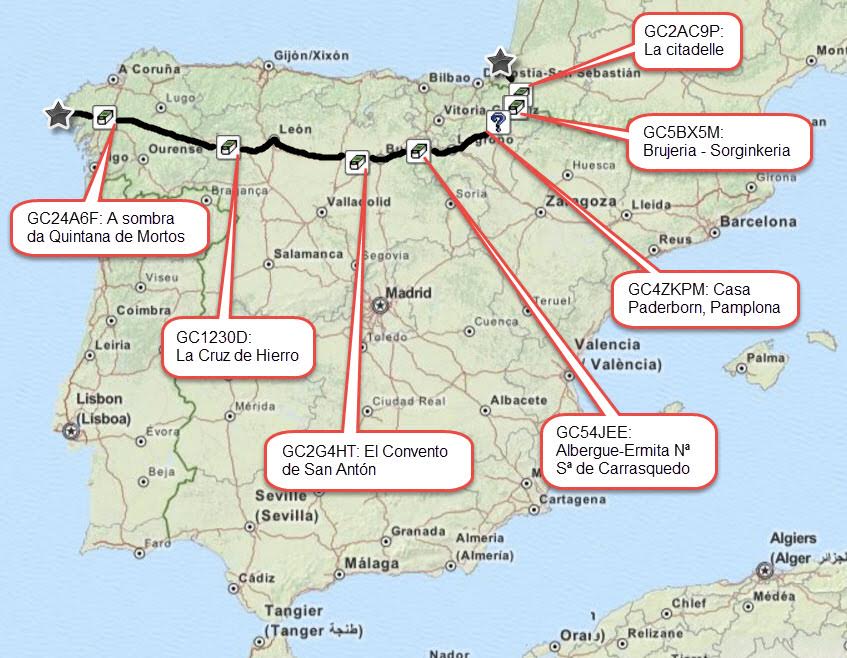
Have you ever wanted to go on a pilgrimage?
Just as summer turned into autumn, I was fortunate enough to walk across Spain. Literally. Those 1,043 km took me over 3 mountains, flat through 7 days of the exquisite meseta (plateau), and across more than a thousand years of Spanish Catholic history. Those kilometers also brought me conveniently near several remarkable geocaches. And bonus: two new country souvenirs! This pilgrimage is called El Camino de Santiago.
I began my 38-day walk in the misty French town of Saint-Jean-Pied-de-Port, nestled in the foothills of the Pyrenees. Although I had gotten a late start that morning, I still walked against the pilgrim traffic towards the cache at La citadelle to earn my France souvenir: magnifique! Later that day, I walked from France into Spain, over the Pyrenees.
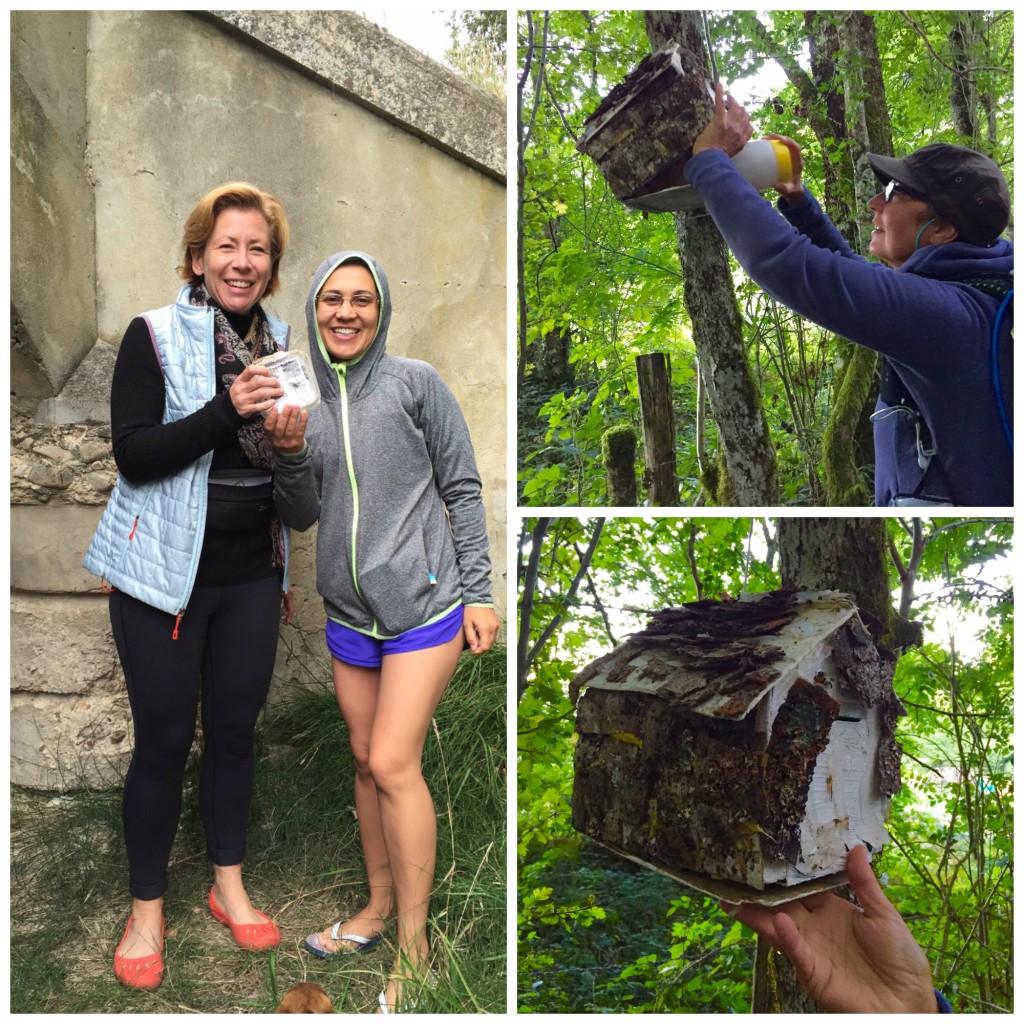
On the second day, my new friend Amber asked me what this game is all about. The best way to explain geocaching is to show it, of course! At first, we DNF’d at Caminante No Hay Camino… which is ironic given what that cache title means. We found success at Brujeria – Sorginkeria – maravilloso! – and only because this Dutch woman also speaks Spanish and helped me understand that the hint (pío, pío) is about birds: something not immediately obvious to a non-native Spanish speaker like me. Amber’s first find had a very creative container, and we secured that additional country souvenir.
Walking farther west, we stumbled upon a German-style T5 experience at Casa Paderborn, Pamplona: märchenhaft! I estimated the cache height to be some 21 feet or so off the ground, well beyond the 14-foot ladder I borrowed (a ’14-foot ladder’ is probably called something different in a place where they don’t measure things in feet.) My pilgrim friends and 10 cyclists who happened to be resting below the tree did not understand what was happening. Even I was pretty amazed that WAY UP THERE is where my day went, in a dress, no less. They asked me from the ground: ¿Qué encontraste en el contenidor? What did I find in that container? Adventure and a great story to tell, that’s what.
The Casa Paderborn, Pamplona cache brought me additional joy because I had helped to develop the Paderborner Land GeoTour in Germany. This pilgrim hostel and this geocache both represent a sisterhood between the city where I was and a city that hosts a GeoTour! My worlds were coming together in delightful, mathematically unlikely ways.
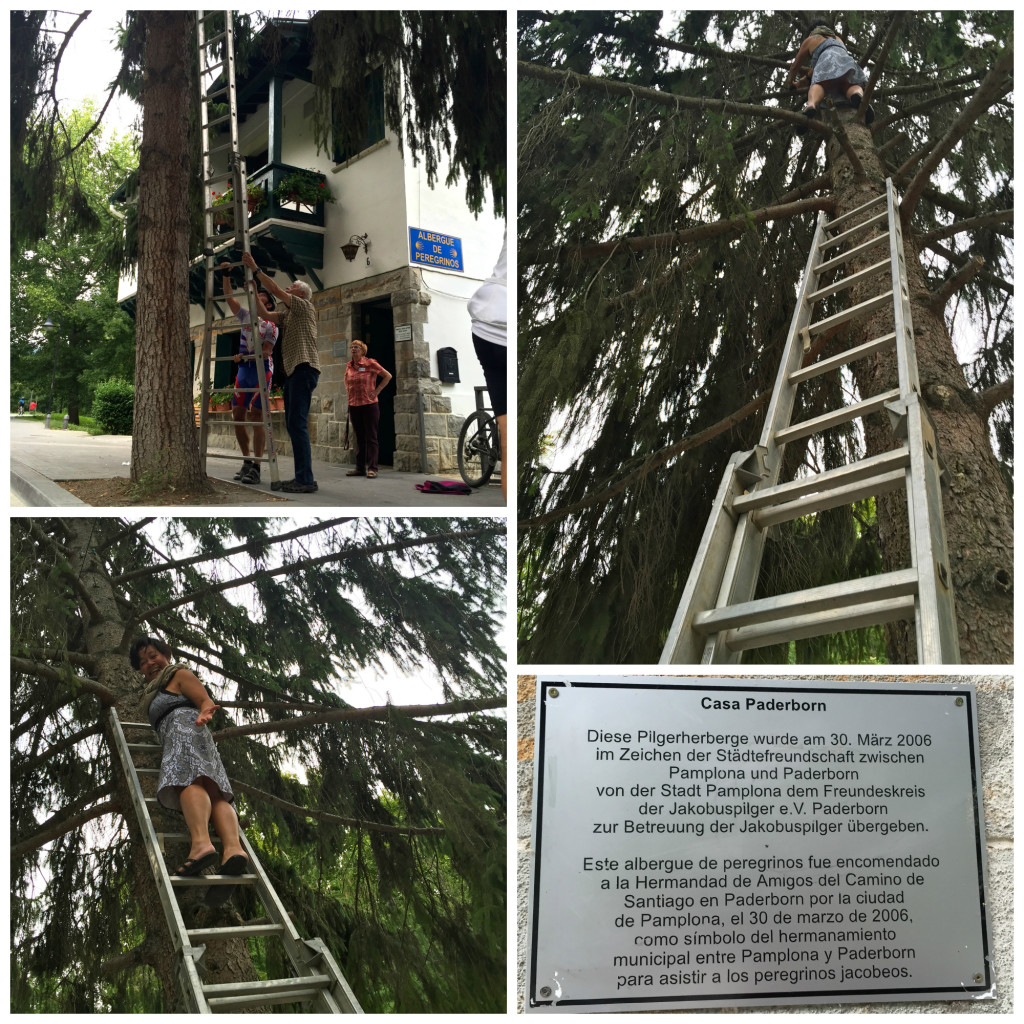
By the time I got to La Cruz de Hierro, I was in my 4th week of walking. One of the most significant and powerful moments along the pilgrimage route, I had every intention of finding this geocache as a personal milestone. As it turned out, the significance and power of the moment itself caused me to forget about all about geocaching; instead my thoughts went to so many other far-off places. I recorded that as a memorable DNF since I had intended to find it and once within a few meters of the cache, I simply forgot to look. Has that ever happened to you?
Right outside the cathedral at Santiago de Compostela is a shadowy geocache called A sombra da Quintana de Mortos. Finding it at night when the lights are on makes for the best experience: architectural factors at the location combine, creating the magical illusion of a pilgrim forever tethered to the cathedral walls. It’s quite an improbable combination: the bumps on the cathedral walls were built independently of the simple pillar that creates the shadow. Further, the electric lights were added hundreds of years later. This is not something included in a typical guidebook. This is something I found only because of geocaching.
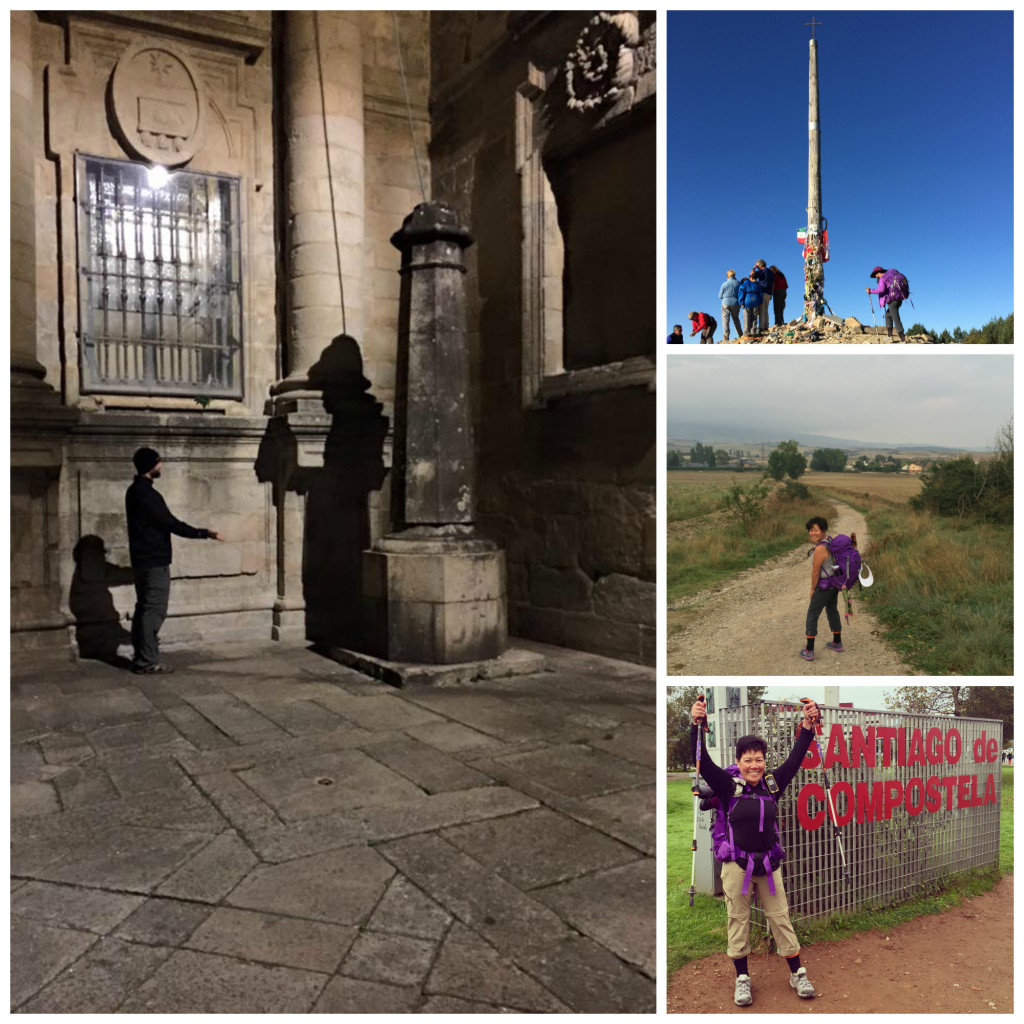
Signing each of those geocache logs reminded me how geocachers have more than just geocaching in common. My stories intertwined with other pilgrims’ narratives as they each made their way one step at a time towards the city of Santiago de Compostela just like I did, but differently than I did. For example, the logs show that Dauby had started in Prague while I started walking just over Spain’s border with France. I read that the Canadian 3 Bearss were pawing through caches, always just a few days ahead of me. I actually met Maltese superprizz in person in Burgos (at a cache owned by my friend and Community Volunteer Stitch81) and we must have had very different paces since we didn’t run into one another again. Stitch81 himself had walked his own Camino many years ago, and he gave me sound advice and helped me with critical provisions.
It will take me ages to process all my many stories about this awe-inspiring, multi-faceted experience called El Camino de Santiago. At least I have now told you about some of the caches that helped make it an even better adventure.
What is the longest distance you have walked while geocaching?

